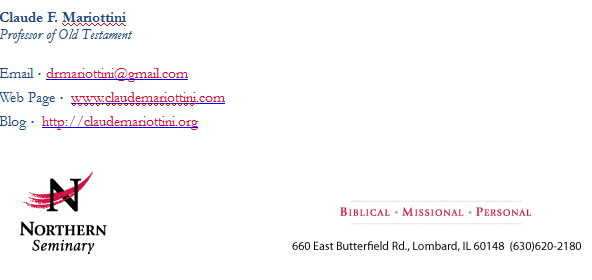Michael W. McConnell, Director of the Constitutional Law Center at Stanford University, wrote an important article published in The Wall Street Journal in which he discussed the Obama administration case before the Supreme Court in which the administration asked the Court to decide whether the Federal Government can decide which church employees are clergy and which are not.
Below is an excerpt from the article:
Today, the Obama administration will invite the Supreme Court to open a new front in the culture wars. Hosanna-Tabor Evangelical Lutheran Church and School v. EEOC concerns a commissioned minister, Cheryl Perich, who taught elementary school and led chapel devotions at a small Lutheran school outside Detroit. Ms. Perich became ill and was replaced in the classroom by a substitute. In the middle of the school year she sought to return and then, instead of attempting to work out the dispute through the church’s reconciliation process, she threatened to sue.
As relations broke down, the church congregation voted to withdraw her “call” to the ministry, and she ceased to be eligible for her prior job. She sued under the Americans with Disabilities Act, with the support of the federal Equal Employment Opportunity Commission.
The federal statutes outlawing employment discrimination based on race, sex, age and disability contain no express exception for church employers. But for 40 years lower courts have applied a “ministerial exception,” which bars the government from any role in deciding who should be a minister. Courts have reasoned that the separation between church and state protects the ability of churches to choose their own clergy just as it protects the state from any control by churches. The Supreme Court has never spoken to the issue.
But who counts as a minister? Cheryl Perich’s duties included leading students in prayer and worship, but she also taught secular subjects, using ordinary secular textbooks. The sole disagreement in the lower courts was whether her job was sufficiently religious to be considered ministerial. The Supreme Court will consider, for the first time, how to make that determination.
But the Obama Justice Department has now asked the court to disavow the ministerial exception altogether. This would mean that, in every future case, a court—and not the church—would decide whether the church’s reasons for firing or not hiring a minister were good enough.
This case has important ramifications for churches and ministers. Mr. McConnell wrote:
[T]he government, including the judiciary, is not entitled under the First Amendment to decide what qualifications a minister should have, or to weigh religious considerations against others. Is a secular court to decide, for example, whether confining Catholic priests or Orthodox rabbis to males is a correct interpretation of scripture, or merely a vestige of outmoded and stereotypical bias?
McConnell’s article provides an important overview of the issues involved in this case. It is a must read. Read the article here.

















Is it now okay to fire an employee on the grounds that they’re disabled, as long as you can hide behind religion to get away with it?
LikeLike
Dear friend,
You need to read the article again. The issue is not about disability; the issue is whether the Federal Government can decide which church employees are clergy and which are not. Once the Federal Government decides who is a minister and who is not ,they violate the Constitution which separates church and state.
Claude Mariottini
LikeLike
Pingback: Obama’s War on Religion | Claude Mariottini - Professor of Old Testament
Claude,
After reading the Cornell bulletin it appears to those authors the issue is not government/courts deciding who is clergy but simply the scope religious organizations have under the First Amendment to claim “ministerial exemption” from ADA law, etc. Surely the First Amendment does not empower all religious organizations to discriminate however they want to.
See http://www.law.cornell.edu/supct/cert/10-553
“Does a court violate the First Amendment when it considers issues pertaining to teacher employment in a religious organization where the teacher serves both secular and religious functions? … The Supreme Court will decide whether a ministerial exception applies to a teacher at a religious school who teaches secular subjects.”
http://www.scotusblog.com/case-files/cases/hosanna-tabor-evangelical-lutheran-church-and-school-v-eeoc/
“Or, Plain English Issue: Courts have generally believed that federal employment discrimination statutes do not apply to church employees performing religious functions. The question is whether this ministerial exception applies not simply to religious leaders, but also to teachers at a religious elementary school.”
This is a tricky case, and that is precisely why SCOTUS is taking it on.
To claim the Obama Administration is somehow conducting a “war on religion” based on this case is, IMO, absurd, not that you are doing that, Claude. Just because EEOC (currently administered under Obama’s Executive authority) appealed to SCOTUS does not mean Obama’s administration leans more toward blurring the distinction between church and state. It may simply mean, as suggested by the Cornell authors and SCOTUSblog, that the administration wants SCOTUS to clarify application of the ministerial exception in the ADA.
LikeLike
Chris,
Thank you for your comment. I am not saying that the Obama administration is conducting a war on religion, but it is true that the administration is not very friendly to religious sensibilities and this is seen in many actions taken by the administration.
Thank you for your comment. Have you stoped blogging?
Claude Mariottini
LikeLike